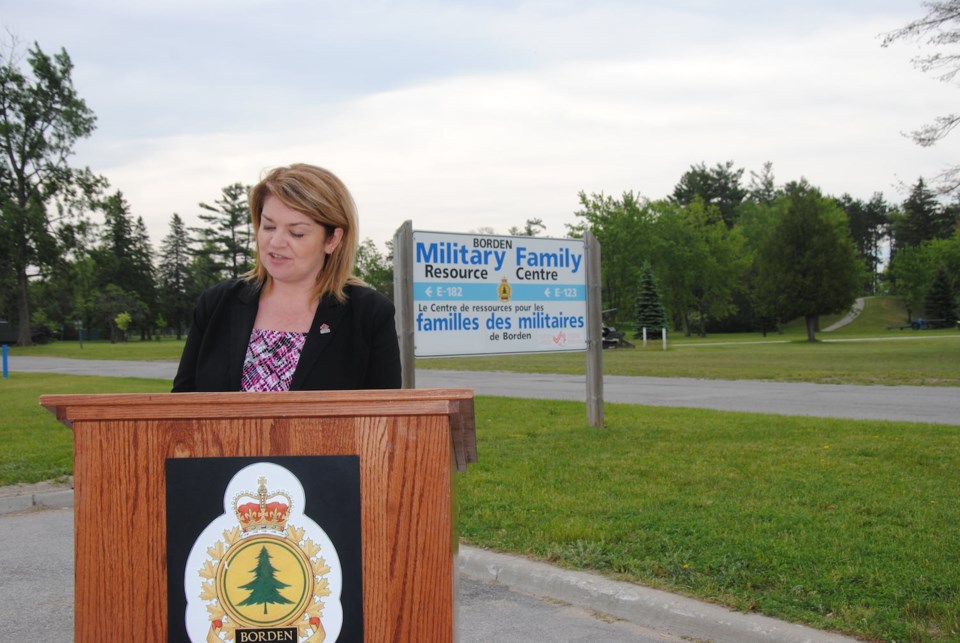With two sons in the armed forces, Sherry Romanado knows that military families have a key role to play in Canada’s defence policy.
And as parliamentary secretary to the veterans affairs and associate minister of defence, Romanado highlighted how the new defence policy – Strong, Secure, Engaged – will be backed with 70 per cent more funding over the next decade.
Last Wednesday, the federal government announced defence spending will increase to $32.7 billion by 2026/27, up from the current $18.9 billion, an increase of over 70 per cent.
Some of that investment will be coming to Borden, where families spend critical years learning and growing.
“Borden is a really important base for recruitment and training. We’re cognizant there has not been enough funding over the past 30 years. We’ll work with the base commander on the needs of infrastructure and on human assets are addressed,” Romanado said, adding the plan will support not only the men and women in the forces, but also their families “who are the source of so much of their strength”.
Although the financial investment will add fighter jets and warships, it also means an investment in bases like CFB Borden and in services that support the families who live there, such as the military family resource centre.
“Military families are the unsung heroes behind the uniform,” Romanado said, as she described a new “comprehensive families plan”, which will not only boost funding to military family resource centres on the bases, but it will coordinate services across the country and link families with the services they need.
“That is what has me most excited about this policy. It recognizes that spouses and partners, mothers and fathers, daughters and sons, sisters and brothers and loved ones provide the foundation of support our personnel need to do their jobs, to stand firm in the face of danger and to protect Canada and Canadians.
“It also recognizes that military life places significant stresses and strains on military families, like extended absences from home, operational deployments and moving cities and provinces for a loved one’s next posting.”
With that change come a lot of challenges – from finding a doctor to registering the children for daycare and school to changing the driver’s licence and insurance, she said.
The government’s plan also boosts the wages for those who serve in the military, a $600 million injection, and a new tax exemption for those who are serving on international missions will be made retroactive to Jan. 1, 2017.
Romanado acknowledged CFB Borden has unique challenges: the cost of living is high and there are many Francophone families training there.
“We don’t have enough PMQs (private married quarters). We’ve had some very frank conversations,” she said, after meeting with spouses at the Borden Family Resource Centre Monday morning.
She knows first-hand what a critical difference the family resource centre plays for parents with sons and daughters overseas, of spouses, of brothers and sisters and of children with parents who are away on a mission.
“I have sons in the forces and you hear the stories. ‘Mom, I can’t get good boots.’ They have to have the supplies and equipment they need. They also need to know that someone is cutting their grass at home.
“Military family resource centres are doing more with less and we need to recognize that.”



